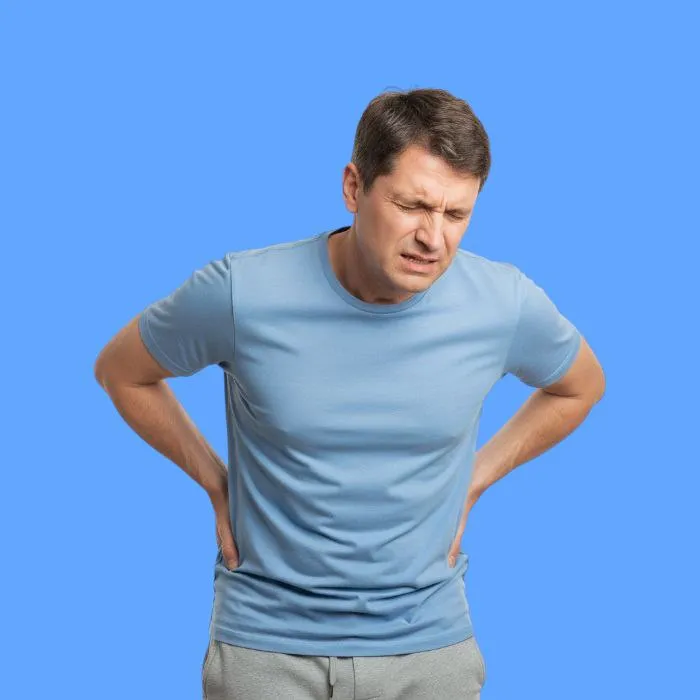What is kidney stone disease?
Kidney stones are solid masses that form inside the kidneys when minerals and salts accumulate in high levels in the urine.
They may be small and pass easily, or large and cause severe pain as they pass through the urinary tract.
This disease is a common condition that affects both men and women, and is often caused by insufficient water intake or an unbalanced diet.
What are the causes of kidney stone disease?
There are several factors that may lead to the formation of kidney stones, the most prominent of which are:
- Insufficient daily water and fluid intake.
- Excessive consumption of foods rich in salts or proteins.
- A family history of stones.
- Suffering from certain kidney or parathyroid diseases.
- Long-term use of certain medications.
What are the common symptoms of kidney stone disease?
Symptoms vary depending on the size of the stone and its location in the urinary tract. The most common symptoms include:
- Sharp pain in the side or lower back.
- Pain extending to the lower abdomen or groin.
- Blood in the urine. Nausea or vomiting accompanied by pain.
- Frequent urination with a burning sensation.
When should you see a doctor?
It is recommended to see a doctor immediately if symptoms suggest the presence of kidney stones occur, such as:
- Severe pain that does not relieve medication.
- Fever or chills.
- Clear blood in the urine.
- Difficulty or interrupted urine flow.
- Persistent nausea or severe vomiting.
What are the methods for diagnosing kidney stones?
Doctors use several methods to diagnose stones and accurately determine their size and location, including:
- Urine analysis to detect salts or blood.
- Ultrasound examination.
- CT scan to detect small stones.
- Blood test to evaluate kidney function.
- Study the composition of the stone after it has passed.
What are the methods for treating kidney stones?

Treatment varies depending on the size, type, and location of the stone in the urinary tract. The most important methods include:
- Drinking plenty of water to facilitate the passage of the stone.
- Taking painkillers to relieve pain.
- Using medications to help dissolve some types of stones.
- Ultrasound lithotripsy in moderate cases.
- Surgery or endoscopy to remove large stones.
Is kidney stone disease curable?
Yes, complete recovery is possible in most cases if treatment is prompt and timely.
The speed of recovery depends on the size of the stone and the body's response to treatment.
After recovery, recurrence can be prevented by changing eating habits and increasing water intake regularly.
What are the tips for preventing kidney stones?
Prevention begins with maintaining a healthy lifestyle and proper nutrition. The most important tips include:
- Drink adequate amounts of water daily.
- Reduce salty foods.
- Moderate intake of animal protein.
- Include plenty of fiber-rich fruits and vegetables.
- See your doctor regularly if you have a medical history.
What are the potential complications of kidney stone disease?
Neglecting treatment for stones can lead to serious complications affecting the kidneys and body, such as:
- Urinary obstruction.
- Recurrent urinary tract infections.
- Permanent damage to kidney tissue.
- Partial or complete kidney failure.
- Chronic back or abdominal pain.
Frequently Asked Questions About Kidney Stone Disease
Can stones pass without medical intervention?
Yes, if they are small and you drink plenty of water.
Does the disease recur after treatment?
Yes, if lifestyle or nutrition changes are not made.
Do stones cause kidney failure?
Rarely, unless treatment is neglected or a prolonged blockage occurs.
Does drinking coffee cause stones?
Only excessive consumption may increase the risk of kidney stones, but moderate amounts are safe.
Article Summary
Kidney stones are a painful problem, but they are treatable and preventable.
Drinking water regularly, avoiding salty foods, and maintaining good overall health can reduce the risk of kidney stones.
Don't ignore any kidney pain; early treatment protects you from complications and ensures kidney health.